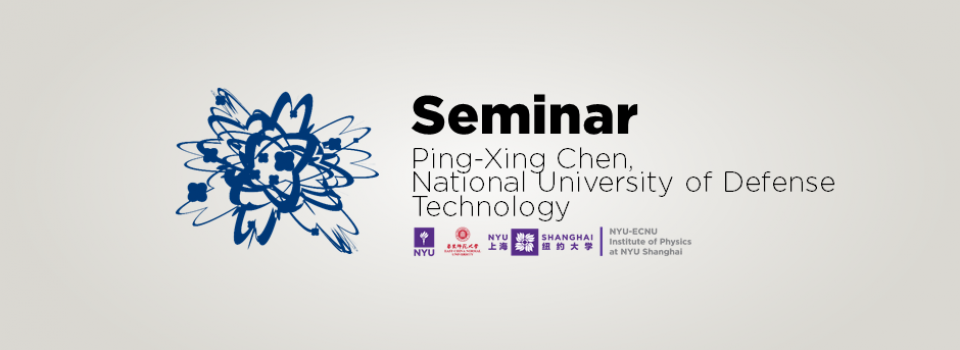
Abstract:
Trapped ion is a promise system for quantum information processing. In this talk, I will introduce briefly our scheme for ions cooling and the method to measure quantum states. Then, I will introduce our chip ion-trap in detail. For scalable quantum information processing with trapped ions, a chip trap is under active consideration. The stable trapping and transformation of the ions in chip traps are necessary for the preparation and operation of the ions states with high fidelity. We designed a surface-electrode chip trap, and show it has excellent ability of trapping ions. Using some practical experimental operation methods, we have successfully reduced the trap heating rate. As a result, we are able to trap a string of up to more than 50 ions, and a zigzag structure with 24 ions, and transport trapped ions to different zones. Also we proposed a feedback control method for producing an equidistant ion string in a surface-electrode ion trap. These would be practical to create a linear ion string with a large number of ions and may find applications in large-scale quantum computing, quantum simulation, and phase transition studies utilizing homogeneous ion strings.
Biography:
Ping-Xing Chen is currently Professor of physics at Interdisciplinary Center of Quantum Information, National University of Defense Technology. He received his Ph.D. in quantum information from National University of Defense Technology in 2003. After that he spent two years as Postdoctoral Fellow at the Key Lab of Quantum Information, University of science and technology of China. Professor Chen is a Committee Member of quantum Optics committee in China, and also a Member of Editorial Board of Quantum Optics in China. His research interest include Quantum optics and quantum information, quantum non-locality, the properties of entanglement states, adiabatic quantum computation and quantum simulation with ion trap, quantum imaging via entangled and pseudo-thermal light with the help of compressed sampling, etc.
Seminar by the NYU-ECNU Institute of Physics at NYU Shanghai


